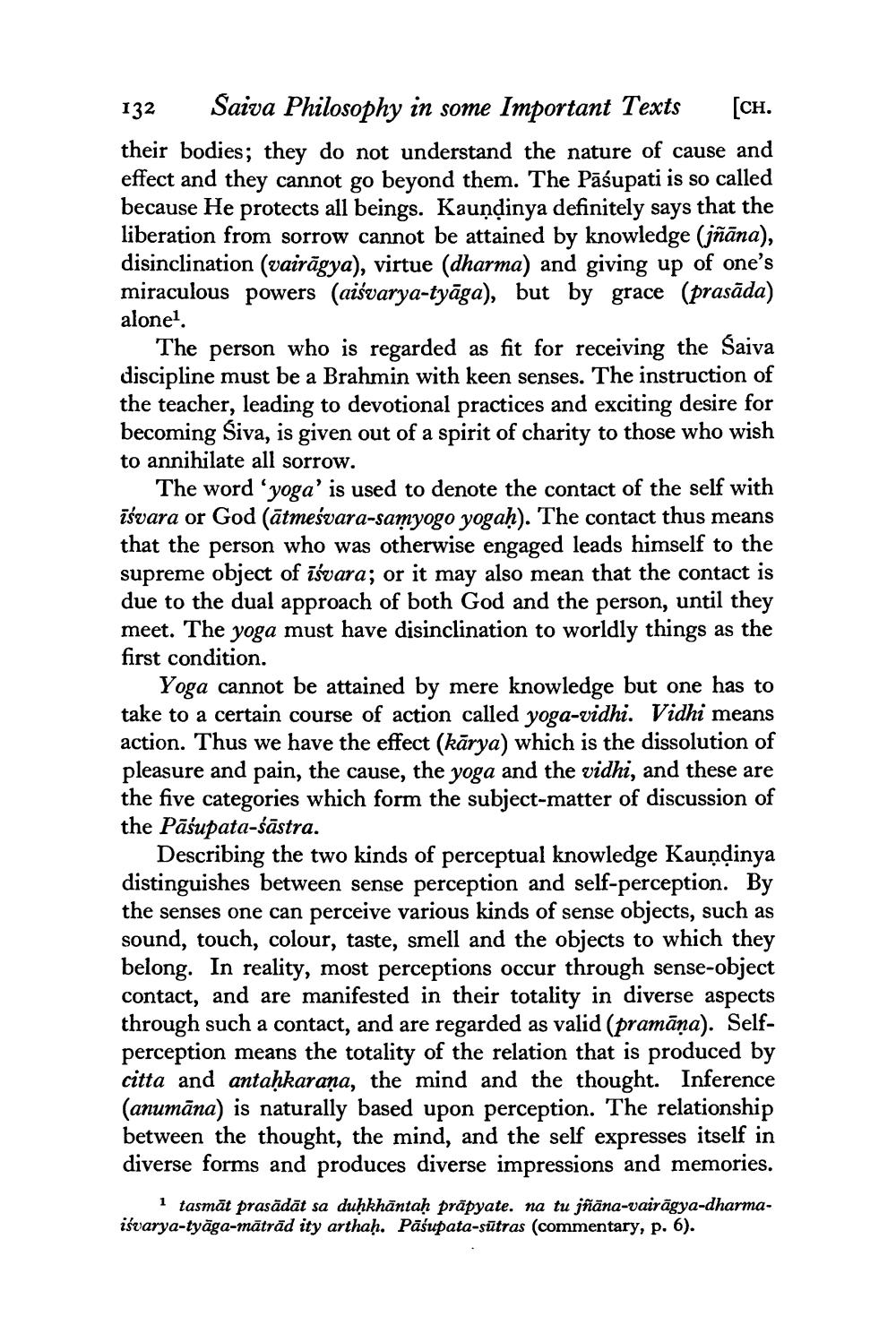________________
132 Saiva Philosophy in some Important Texts [CH. their bodies; they do not understand the nature of cause and effect and they cannot go beyond them. The Pāśupati is so called because He protects all beings. Kauņņinya definitely says that the liberation from sorrow cannot be attained by knowledge (jñāna), disinclination (vairāgya), virtue (dharma) and giving up of one's miraculous powers (aišvarya-tyāga), but by grace (prasāda) alonel.
The person who is regarded as fit for receiving the Saiva discipline must be a Brahmin with keen senses. The instruction of the teacher, leading to devotional practices and exciting desire for becoming Siva, is given out of a spirit of charity to those who wish to annihilate all sorrow.
The word 'yoga' is used to denote the contact of the self with īśvara or God (ātmeśvara-samyogo yogaḥ). The contact thus means that the person who was otherwise engaged leads himself to the supreme object of īśvara; or it may also mean that the contact is due to the dual approach of both God and the person, until they meet. The yoga must have disinclination to worldly things as the first condition.
Yoga cannot be attained by mere knowledge but one has to take to a certain course of action called yoga-vidhi. Vidhi means action. Thus we have the effect (kārya) which is the dissolution of pleasure and pain, the cause, the yoga and the vidhi, and these are the five categories which form the subject-matter of discussion of the Pāśupata-śāstra.
Describing the two kinds of perceptual knowledge Kauņdinya distinguishes between sense perception and self-perception. By the senses one can perceive various kinds of sense objects, such as sound, touch, colour, taste, smell and the objects to which they belong. In reality, most perceptions occur through sense-object contact, and are manifested in their totality in diverse aspects through such a contact, and are regarded as valid (pramāņa). Selfperception means the totality of the relation that is produced by citta and antaḥkaraņa, the mind and the thought. Inference (anumāna) is naturally based upon perception. The relationship between the thought, the mind, and the self expresses itself in diverse forms and produces diverse impressions and memories.
1 tasmāt prasādāt sa duhkhāntah prāpyate. na tu jñāna-vairāgya-dharmaišvarya-tyāga-mātrād ity arthaḥ. Pāśupata-sūtras (commentary, p. 6).




